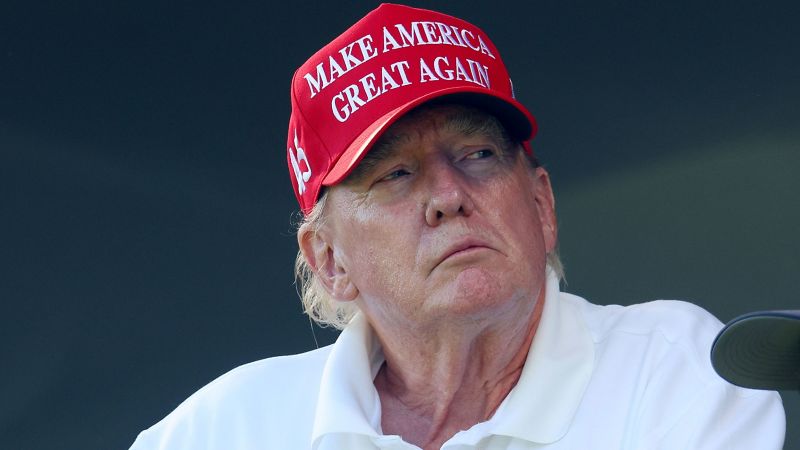Former President Donald Trump dismisses Georgia indictment as a “witch hunt” and calls on Republicans to be tougher. Trump cancels planned news conference and opts to present evidence in court. Trump’s legal team advises against holding a press event. Trump has made false claims about election fraud without proof. Trump’s comments catch his team off guard. Liz Harrington, an aide to Trump, has been a promoter of election lies.
Title: Trump’s Candid Response to Georgia Indictment: Reveals Startling Revelation on Camera
Introduction
Former President Donald Trump’s recent candid response to the indictment of several individuals in Georgia has once again thrust him into the spotlight. In a surprising revelation captured on camera, Trump expressed his thoughts on the indictment, shedding light on his perspective and raising questions about the state of American democracy. This article aims to analyze Trump’s response, its implications, and the broader context surrounding the ongoing political discourse in the United States.
Trump’s Response
During a recent interview, Trump was asked about his thoughts on the indictment of several individuals in Georgia related to the 2020 presidential election. In his characteristically unfiltered manner, Trump responded with a startling revelation. He claimed that the indictment was evidence of widespread fraud and irregularities in the election, suggesting that it was just the tip of the iceberg.
Implications
Trump’s response carries significant implications for the ongoing debate surrounding the integrity of the 2020 election. While his claims of widespread fraud have been widely debunked and dismissed by multiple courts, his continued insistence on the matter has fueled conspiracy theories and further polarized the American public. By linking the Georgia indictment to his broader narrative of election fraud, Trump has once again cast doubt on the legitimacy of the democratic process.
The broader context
Trump’s response must be understood within the broader context of his post-election rhetoric and the subsequent events that unfolded. Following his defeat in the 2020 election, Trump repeatedly claimed that the election was stolen from him, without providing substantial evidence to support his allegations. These claims culminated in the storming of the U.S. Capitol on January 6, 2021, by a mob of his supporters, who sought to overturn the election results.
Critics argue that Trump’s response to the Georgia indictment is yet another attempt to undermine the democratic process and delegitimize the Biden administration. By perpetuating baseless claims of election fraud, Trump continues to erode public trust in the electoral system, potentially undermining the foundation of American democracy.
The importance of evidence-based claims
It is crucial to emphasize the importance of evidence-based claims in any democratic society. While allegations of election fraud should be taken seriously and investigated thoroughly, it is equally important to rely on credible evidence and legal processes to determine the veracity of such claims. Trump’s repeated assertions of fraud without substantial evidence have contributed to the erosion of public trust in the electoral system and have the potential to undermine the democratic fabric of the United States.
Conclusion
Trump’s candid response to the Georgia indictment has once again brought the issue of election fraud to the forefront of American political discourse. While his claims of widespread fraud have been widely debunked, his continued insistence on the matter raises concerns about the state of American democracy. It is crucial for citizens, politicians, and the media to critically evaluate claims and rely on evidence-based arguments to ensure the integrity of the democratic process. Only through a commitment to truth and transparency can the United States move forward and rebuild public trust in its electoral system.








